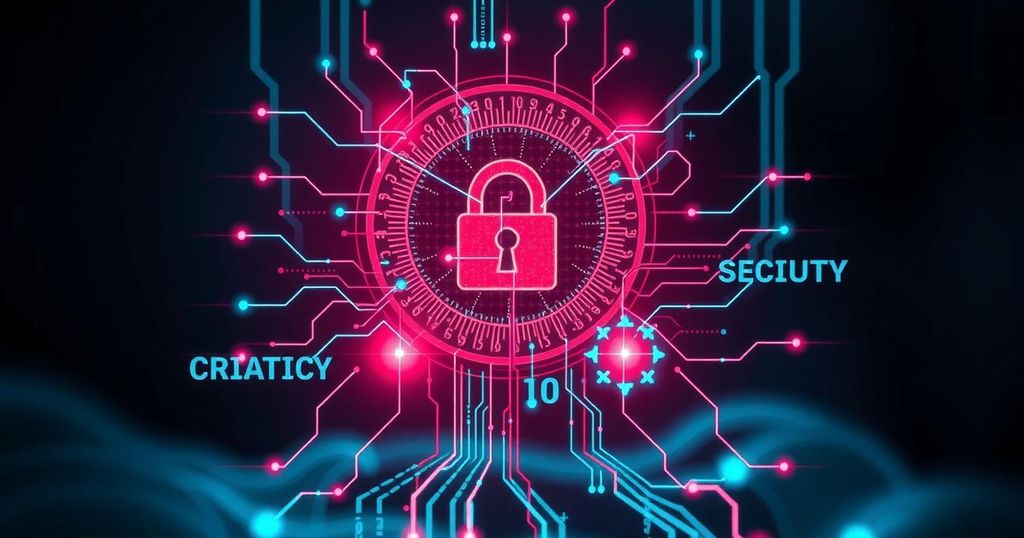Record-Breaking $1.5 Billion Cryptocurrency Heist by North Korean Hackers

North Korean hackers executed a record $1.5 billion cryptocurrency theft from Bybit, marking the largest single crypto heist. The hackers quickly began laundering a portion of the funds and have previously funded missile programs through such illicit acts. Security experts call for a reevaluation of strategies to deter these cyber crimes effectively.
A recent report indicates that North Korean hackers have executed the largest single cryptocurrency heist to date, stealing $1.5 billion from Bybit, the world’s second-largest cryptocurrency exchange. The attack occurred within minutes and resulted in a substantial loss equivalent to a significant portion of North Korea’s annual GDP, raising concerns about the effectiveness of efforts to counter such cyber threats. Over the subsequent weekend, it was reported that the hackers began laundering approximately $160 million of the stolen funds through accounts linked to North Korean operatives. This breach nearly doubles the total amount stolen in cryptocurrency by North Korean hackers in the previous year, as stated by TRM Labs.
Security experts emphasize that this incident poses a notable challenge for the current administration in curtailing North Korea’s financing of its nuclear and missile programs through cybercrime. Nick Carlsen, a former FBI intelligence analyst now at TRM Labs, expressed grave concern about the unprecedented scale of the incident, highlighting the ability of illicit networks to rapidly siphon large sums of money.
Former officials have noted that North Korea has relied heavily on cyber theft to bolster its economy in the face of international sanctions, with billions of dollars reportedly stolen in recent years from various financial institutions. Notably, it has been reported that approximately half of North Korea’s missile development program has been funded through these digital thefts.
The CEO of Bybit, Ben Zhou, reassured users that the exchange remains solvent and is capable of absorbing the financial loss incurred from the hack. In response to the incident, Bybit has collaborated closely with relevant regulators and law enforcement to mitigate the breach. Meanwhile, there has been no official commentary from the FBI regarding the recent heist.
In the aftermath of such cyberattacks, North Korean operatives engage in extensive money laundering efforts to return stolen funds to Pyongyang. This process typically involves numerous digital currency swaps before final conversions to more steadily accepted currencies like the US Dollar or Chinese Yuan. Law enforcement agencies in both the United States and South Korea are actively monitoring these laundering operations, often with limited time to intervene.
Some recovery efforts have borne fruit, with crypto security experts reportedly assisting in reclaiming around $43 million of the stolen assets, albeit representing a small fraction of the total. Tom Robinson of Elliptic noted that even the seizure of $243,000 constitutes only a minor success in this larger endeavor. Bybit has pledged to allocate 10% of any recovered funds to the security professionals involved in the recovery efforts.
Carlsen urged a reevaluation of current strategies, calling for a more aggressive stance against North Korea’s illicit financial schemes. He asserted, “The current strategy from governments and industry clearly isn’t working. People should be going back through drawing board right now on how to deter and punish North Korea for these hacks.”
This unprecedented theft underscores the ongoing challenges posed by North Korean cyber operations and the urgent need for fortified strategies in countering such threats. With substantial funds being laundered post-hack, the situation remains critical as authorities scramble to reclaim the stolen assets. The broader implications of these activities extend to national security concerns related to North Korea’s missile program funding, necessitating a collaborative and proactive response from global regulatory and law enforcement entities.
Original Source: www.cnn.com








